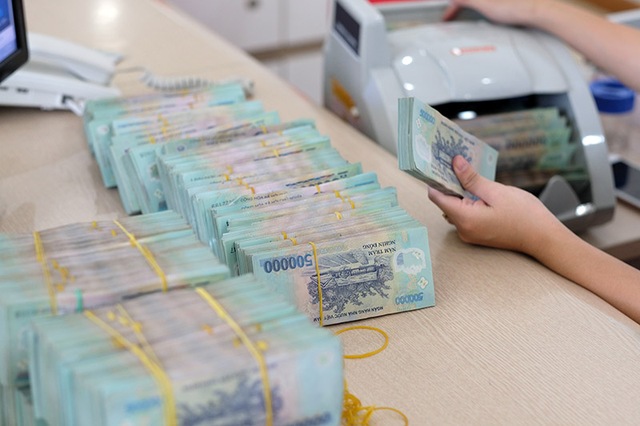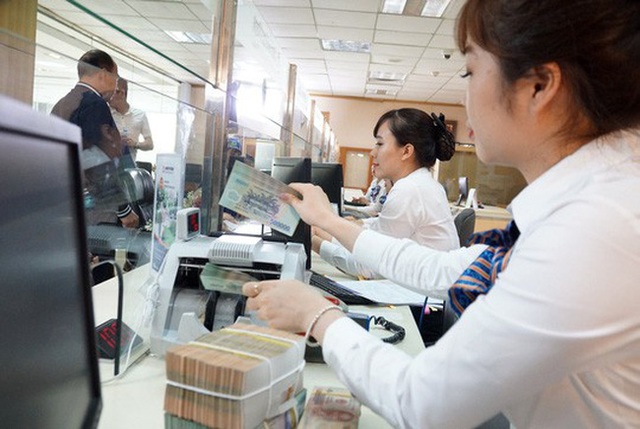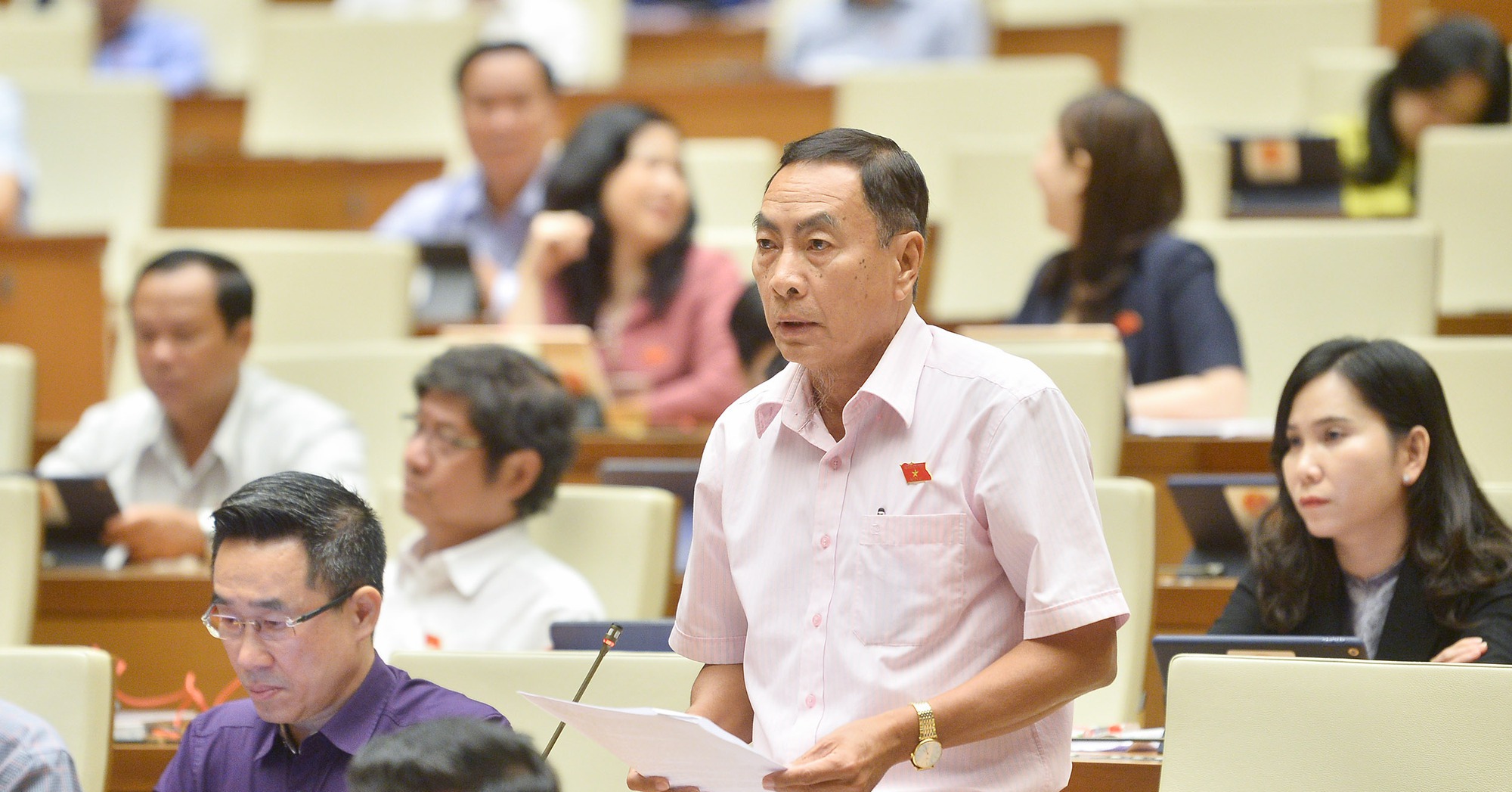Credit control in speculative fields: How to tighten properly?
After the epidemic is under control, in order to recover the economy, we need a large source of capital to support production and business. However, the reality of the past time shows that idle capital in the people, businesses and commercial banks is pouring speculation into a number of high-risk fields, the risk of forming a “bubble”. “For the economy such as real estate, securities… In this situation, the Government has had drastic instructions on adjusting capital flows into the banks. speculative field.
At the Resolution No. 50 of the Government’s regular meeting in March 2022, the Government requested the State Bank of Vietnam to assume the prime responsibility for, and coordinate with agencies and localities in, continuing to implement proactive and flexible monetary policies. , closely coordinate with fiscal and other policies to control inflation, stabilize the macro-economy, ensure major balances of the economy, and contribute to promoting economic recovery and development. – social, support and remove difficulties for production, business and people’s life.

Idle capital from people, businesses and commercial banks is pouring speculation into a number of high-risk areas. (Illustration image – Photo: Investment Newspaper)
At the same time, the Government also required the implementation of solutions to improve credit quality; focus on handling and minimizing new bad debts; encourage credit institutions to continue to reduce costs in order to strive to reduce lending interest rates and increase credit access for businesses and people; directing credit to production, business and priority fields; strictly control cash flow into speculative fields; further enhance the effectiveness of supervision, inspection and examination of credit institutions related to the issuance of bonds by credit institutions and investment of corporate bonds.
Banks tighten credit in real estate sector
Recently, a number of commercial banks such as Sacombank, Techcombank have announced to suspend lending in the real estate sector.
Since 2019, the State Bank of Vietnam has directed the tightening of credit in potentially risky sectors such as real estate and up to now, banks have taken more drastic actions.
According to many experts, in the face of the current housing market movement, which is said to be overheating, capital for investment in this field may be tightened more in the near future.
Sacombank does not grant credit to the real estate sector, except for loans to officials, employees and buyers/constructors/repairs of residential real estate. This bank also does not make deposits – mortgage loans at the same time. The notice is valid until the end of June this year.
Previously, Techcombank also temporarily stopped disbursing real estate loans (including uncertified or certified) since March 25.
According to representatives of banks, this is an activity to implement the direction of the State Bank on credit growth control, focusing on prioritizing capital in production and business areas.
“From time to time, depending on the issue of controlled growth, we make certain adjustments. If at any time when the sources of activity in real estate loans decrease due to customer repayment, we will I can adjust immediately, not rigidly, have to suspend for a long time”, said Mr. Nguyen Minh Tam, Deputy General Director, Sacombank.
According to Mr. Huynh Phuoc Nghia, Deputy Director, Innovation Institute, University of Economics Ho Chi Minh City, the tightening of real estate credit is being implemented quite closely and tends to expand. From lending projects to raising capital, or participating as a partner. Loans from customers when participating in buying projects. Mortgage loans and credit squeezes at this point are reasonable.
“Most of the credit institutions or the market’s recommendations now think that real estate is having high credit risk. In addition to bonds, we now see high risks related to the market when If the cost is expensive, the price will go up, it creates a low absorption of the market. Especially now, the market is biased towards investment needs, so it is considered a risk.” Mr. Huynh Phuoc Nghia said.

Some commercial banks have announced to suspend lending in the real estate sector. (Illustration image – Photo: Labor)
Some argue that the current restriction of banks on lending to the real estate sector is a temporary measure depending on each bank to re-evaluate loans, risk levels and handling measures to ensure safety. All for the bank.
“Most of those loaned real estate are not real estate with exploitation value, but have sources of income returned to the bank. The latter is even more important when the value of the loans has increased along with it. a piece of land. A piece of land that is handled in 2016, 2017 is different from the settlement in 2021 at a higher price of up to 100 – 200%. Those problems increase a huge risk for the bank,” said Dr. Dinh The Hien, Director, Research Institute of Informatics and Applied Economics.
Positive first quarter credit growth
In the first quarter alone, the credit growth of the whole economy was 5.04%, more than 2 times higher than the figure of the same period in 2021, showing the increasing capital demand from businesses and the economy. economy is recovering positively.
Currently, banks are closely coordinating with businesses through many credit programs and policies to promptly supply capital, ensure cash flow to focus on production recovery.
An Phat Holdings has just invested in an environmentally friendly plastic material factory with technology completely transferred from Germany. Investment capital up to 120 million USD. The initiative in input materials will save production costs by 15-20%, plus the continued preferential credit flow, helping businesses have more confidence in growth prospects.
“We are currently being supported by banks, but because our products are environmentally friendly, we also want to receive more supportive policies from the government and state agencies. “, said Mr. Pham Van Tuan, Deputy General Director of An Phat Holdings.
With 5 priority areas, the real interest rate of many banks is about 4.3%/year on average. This figure is lower than the ceiling lending interest rate in VND which is set by the State Bank of 4.5%/year. Good businesses will actively choose the goal of cooperation with banks, not just debt relationships.
“We will choose banks that not only provide capital but can be friends, advisors, banks that can invest like real investors,” said Mr. Le Van Viet, Chairman of the Board of Directors of Product Cooperatives. Xuyen Viet seafood and export products, said.
In order to increase the opportunity to access cheap capital, businesses expect the banking industry to soon implement a program to subsidize interest rates of 2%/year with a value of more than VND 40,000 billion for a number of important industries and fields. ability to repay and recover.
The credit growth target in 2022 is 14%, but the State Bank is still assessing monetary policy targets to make adjustments at the end of the year to match the real developments of the macro economy. Where will this growth figure be, to what extent is reasonable, safe to ensure production, economic recovery and not obstruct the necessary development of other fields because of the fact, Every sector is an important part of the economy.
How has the bank implemented the direction of the Prime Minister on tightening credit flows into speculative fields? Cash flow has a connection between banks – securities – real estate, so no matter how tight it is, it will affect all 3. What plans does the State Bank have to reduce the impact of credit tightening? use it? How to tighten and how to open is reasonable with the credit line?
These questions will be answered in the program Events and Comments (April 16) with the participation of Dr. Can Van Luc, member of the National Monetary and Financial Policy Advisory Council and Dr. Pham Chi Quang, Deputy Director in charge of Monetary Policy Department, State Bank of Vietnam. Please watch the video above!
* Invite readers to watch programs broadcast by Vietnam Television on TV Online and VTVGo!
at Blogtuan.info – Source: vtv.vn – Read the original article here



